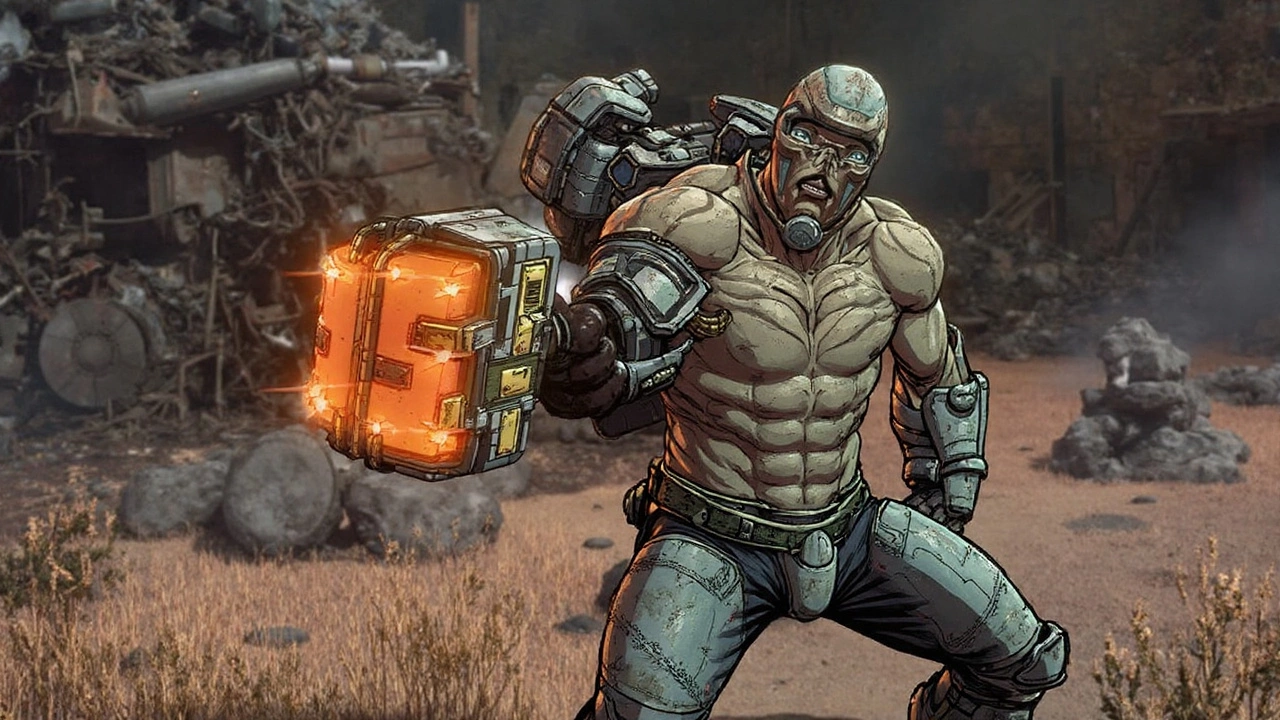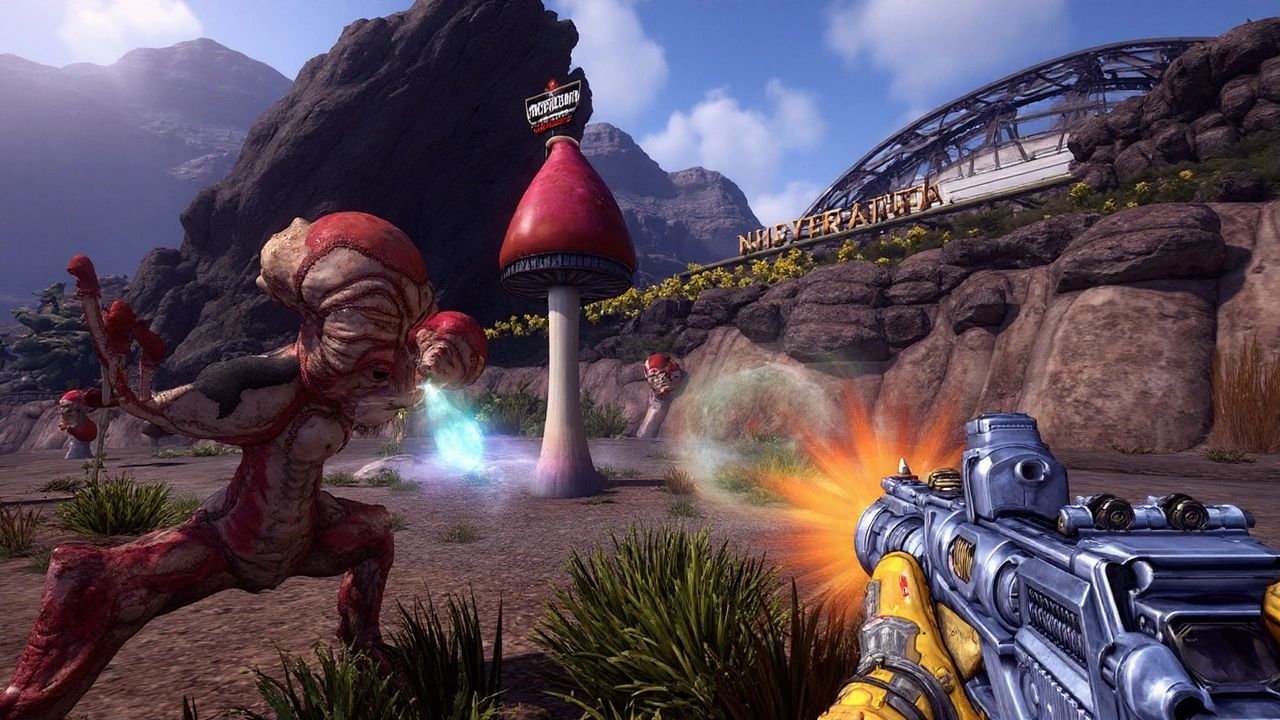A 13-year-old game doesn’t usually pick a fight with the front page of Steam. Yet that’s what happened when thousands of players piled negative reviews onto Borderlands 2 in early June. The trigger wasn’t a new patch or a broken update. It was a legal document: an End User License Agreement, refreshed by publisher Take-Two and rolled out across the Borderlands series right as the game went free-to-keep on Steam.
Players read the new terms, saw what they viewed as sweeping data collection, and mobilized. The result: a review section filled with copy-pasted warnings about spyware, privacy overreach, and a fear that modding—one of the reasons this 2012 looter-shooter is still alive—could be on the chopping block. During the peak, the game drew nearly 2,000 negative reviews versus fewer than 300 positive ones, flipping its recent rating while the lifetime score stayed strong.
What changed—and what players say it means
The controversy centers on the updated EULA and related policy language, which players say grants Take-Two broad rights to collect system and user data. Community posts highlight clauses referencing device identifiers, IP addresses, hardware specs, telemetry, crash logs, and cookies—common items in modern games, but alarming when the scope feels open-ended or vague.
Here’s what players have zeroed in on:
- Wide data categories: hardware details, IP addresses, device IDs, and telemetry tied to activity in-game.
- Behavior tracking: language that could enable detailed usage profiling beyond anti-cheat needs.
- Third-party sharing: allowances for sharing data with partners for analytics, security, and services.
- Anti-cheat justification: a rationale that feels mismatched for a largely co-op/single-player game.
- Modding risk: standard legal bans on reverse engineering or unauthorized modifications that, if enforced broadly, could threaten popular community projects.
To many players, the fear isn’t just the list of data points. It’s the combination of scope, purpose, and timing. A free-to-keep promotion brings in a flood of new users who may click through terms without looking. The EULA landing during that window felt, to critics, like a bait-and-switch: grab the game, sign the policy, and hand over data.
Gearbox CEO Randy Pitchford tried to tamp that down, telling fans on X that there were no software-level changes to Borderlands on PC that would behave like spyware. Take-Two’s line is predictable and common across big publishers: this is about anti-cheat and security. But players ask a simple question—why does a 2012 co-op shooter need deep tracking now?
It’s worth separating two things. EULAs often include broad, CYA-style language that companies may never enforce to the maximum. They also tend to disallow modding by default, even in games that quietly thrive on it. On paper, that’s normal. In practice, the fear is about discretion—what will the company actually do with those permissions?
There’s also the question of access. Some viral posts claimed the update could open the door to root-level control. Nothing in public statements confirms kernel drivers or new invasive software on Borderlands. That said, players have watched other games add kernel-level anti-cheat in recent years, and they’re wary of any policy that could be used to justify that down the line.
Privacy laws make this even more complicated. Under Europe’s GDPR and California’s CCPA/CPRA, companies need clear purposes, consent, and retention limits. If a publisher says “security,” regulators may ask: security of what, exactly? How long is the data stored? Can users opt out without losing access? Boilerplate that looks fine to a lawyer can read as a red flag to the people who actually play the game.
There’s a recent history here too. Take-Two’s 2K-branded launcher has frustrated PC players before, occasionally interfering with mod workflows in older games. The company also runs large live-service titles where anti-cheat and analytics are standard. Fans worry those habits are bleeding into legacy single-player/co-op titles without clear guardrails.
Then there are the mods. Borderlands 2’s Community Patch, BL2 Reborn, and other tweaks have kept the game fresh for years. When a policy reiterates bans on reverse engineering and unauthorized modifications—language that’s common across the industry—players hear a warning shot. Even if nothing changes day to day, the legal foundation for a crackdown is now in print. And that’s enough to spook a community that built its own content lifeline.

How the backlash spread, and what might happen next
The spark was a viral YouTube breakdown that walked through the policy changes in blunt terms. From there, the message bounced to Reddit, Discords, and X, where players packaged their complaints into shareable review templates. The tone was urgent: uninstall now, don’t sign, protect your data. Within days, the entire Borderlands catalog on Steam saw a synchronized flood of negatives.
Valve has tools for moments like this. When it sees “off-topic review activity,” it can wall off those reviews from the score while leaving them visible. That policy has been used across many franchises in recent years. Whether Valve applies it here, and how broadly, will shape how long the ratings hit sticks. For now, the optics alone matter—new players see a wall of warnings and think twice.
Timing made everything worse. The free-to-keep campaign on Steam ballooned the audience just as the EULA landed. Skeptical fans argue this looks like a data harvest. Take-Two would counter that free giveaways are a common funnel and the EULA refresh was a portfolio-wide update, not a targeted move on one game. When trust is low, explanations land flat.
Corporate backdrop doesn’t help. Take-Two now owns Gearbox, the studio behind Borderlands, after buying it from Embracer in 2024. That shuffle puts the franchise under one corporate roof with a heavy emphasis on live ecosystems and sophisticated data operations. It’s not hard to see why long-time PC fans fear a one-size-fits-all approach to telemetry and anti-cheat being bolted onto their old favorites.
There are a few practical questions players are asking right now:
- Can I play without agreeing? On most platforms, declining updated terms blocks access to online features and sometimes the game itself.
- Is there an opt-out? Companies sometimes offer limited opt-outs for analytics or marketing, but not for security/anti-cheat collection that they consider essential.
- What’s actually installed? Pitchford says no software-level changes to the PC games. If true, that means the controversy is mostly about permissions, not new drivers.
- What about mods? If enforcement stays as-is, modding could continue as normal. If not, creators worry that EULA language could be used to shut projects down.
Industry precedent is mixed. Riot’s Valorant caught heat for kernel anti-cheat, then won players back by being clear about how it worked and why it was needed. Other publishers have had to roll back or clarify privacy policies under pressure, especially in Europe. In some cases, the fix was simple: tighter wording, explicit opt-outs, and better dashboards for seeing what’s collected.
What would help here? Straight answers. If the EULA covers broad analytics across all Take-Two titles, the company could separate Borderlands with a lighter privacy tier, confirm that no kernel-level drivers are used, and state in plain language that modding of the existing PC games won’t be targeted. Publishing a short, game-specific data list—what’s collected, why, how long it’s kept—would do more than a generic privacy page ever could.
On the enforcement side, respect for established community mods would go a long way. Many EULAs ban reverse engineering as a default legal stance but then tolerate benign mods in practice. Making that stance explicit—what’s allowed, what’s not—reduces fear and keeps the community busy doing what it does best: extending the life of a classic.
None of this solves the deeper tension. Publishers want durable anti-cheat and strong telemetry to fight fraud, detect exploits, and keep services running. PC players want control over their machines and clarity about what’s peeking under the hood. That’s not going away. But the line between “security” and “surveillance” is blurry if you don’t draw it in thick ink.
As of now, Borderlands 2’s lifetime reputation remains high, but the recent review flameout is a real dent—social proof that scares off newcomers. If Valve steps in with an off-topic filter, the score could recover. If not, the protest will sit at the top of the store page, and that’s powerful.
One last wrinkle: the optics of trust. Even if players misread parts of the policy or overestimate the technical reach, the perception of risk drives behavior. If the terms were meant to be standard legal housekeeping, they landed like a red flag. Turning that around means meeting players on the specifics—no hedging, no buzzwords, just answers.
For a game this old to trend again, the story had to be big. It is. A refreshed EULA collided with a privacy-aware PC audience, a free giveaway, and a mod scene that’s kept the lights on for more than a decade. That’s why the reviews flipped. Not because Borderlands 2 suddenly broke—but because players decided the fine print matters as much as the loot.
